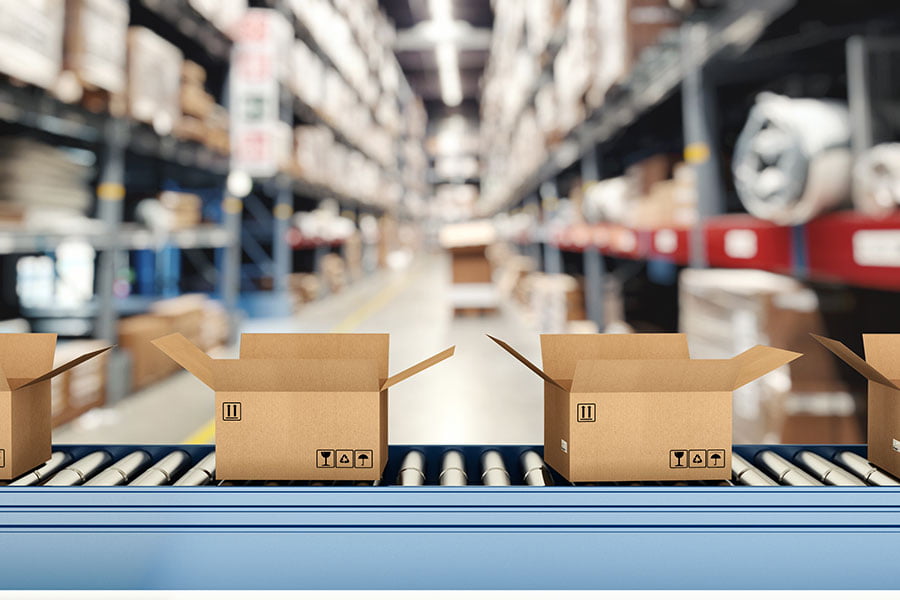Published December 8, 2016
What used to be known as “Singles Day” in China has been redefined and rebranded as “The 11/11 Global Shopping Festival” by the holiday’s eCommerce patron saint, Alibaba. From its origin’s as a quirky anti-Valentine’s Day holiday for lonely college students, to the first promotional sale on Alibaba platforms in 2009 (featuring 27 merchants) this year’s record breaking $17.8 billion in sales in 24 hours. Singles Day went glam, global, and digital in the service of reinventing retail.
Tompkins International’s VP of China/APAC had a front row seat at this year’s event as a specially invited Global eCommerce, China Consumer, and International Retail “Global Influencer” guest. Michael Zakkour addressed a gathering of global brands, Alibaba executives, and 600 members of the international media prior to the 8:00 pm to midnight “Gala” countdown party held on 11/10, discussing the future of digital retail, cross border commerce, and Chinese consumption. He also spent 48 hours in Shenzhen meeting with Alibaba executives, getting a behind the scenes look at the digital retail universe Alibaba is creating. This gave Michael a chance to speak with the retailers and brands who are realizing increased sales and profits by participating in 11-11 and fully engaging Chinese consumers.
The big take-away from this year’s event is that Alibaba is focused on two major objectives:
- To reinvent global retail through a digital transformation and a supply chain driven business model.
- To serve two billion global online shoppers.
Alibaba is not alone in seeking these two goals, Amazon intends the do the same. That said, the two companies have quite different approaches on how to get there. We will focus on Alibaba and how it used this year’s, 11/11 Global Shopping Festival, to launch its campaign to achieve both.
The company deployed a three pronged effort to achieve its goals.
Going Glam – Alibaba hired famed Hollywood producer David Hill to stage a four hour entertainment and shopping “Gala Party” that featured himself, Kobe Bryant, Victoria Beckham, The Victoria’s Secret Angels, and a slew of other Western and Chinese superstars. The event was watched by almost 400 million people globally, thus raising Alibaba’s profile among brands, retailers, and consumers.
Going Digital – Alibaba demonstrated how digital transformation could be used in every aspect of the retail experience including: browsing, shopping, buying, logistics, analytics, payments, and retail as entertainment.
Going International – Alibaba opened up Hong Kong and Taiwan as new markets for participation. This sets the stage for expansion into SE Asia next year, then India, Russia, and eventually Western markets, for not only, The 11/11 Global Shopping Festival, but the full suite of Alibaba’s cross border eCommerce services. This is the path to serving two billion global customers.
The following are some key highlights gleaned from the executive meetings, talks with brands, and observations made over the course of the two days. This is a pared down summary of what we learned. For a more in depth discussion, and report we suggest contacting Michael directly.
The 11-11 Global Shopping Festival
- Alibaba sold $17.8 billion of goods over 24 hours (more than Brazil will post in the entire year of 2016) – Cainiao, it’s logistics arm, processed 657 million orders over 24 hours and Alicloud, its cloud computing division, processed 175,000 orders per second.
- 82% of all purchases were made via mobile devices, up from 68% last year. This has major implications not just for how brands and retailers sell in China, on Tmall, and how they market themselves in China, but this pattern will likely be reproduced in SE Asia, India, and beyond.
- Vertical Integration – Alibaba is creating an entire “economy” and “ecosystem” – Retail (Tmall) Payments (Alipay) Logistics (Cainiao) Cloud, IoT – 11-11 demonstrates the scale of this ecosystem.
- 27% percent of purchases were foreign brands and retailers – This is amazing considering how relatively few international brands and retailers are selling on Tmall – 5,400 out of 100,000 – There is a huge upside for entry and eCommerce strategy.
- Brands who sold this year and last year saw a 47% increase in sales.
- #1 source of foreign brand sales is the United States, followed by Japan, Korea, Australia, and Germany.
New Technology for New Retail Model
- Online-to-Offline (O2O) – A major push in the next couple of years will be ensuring the long term viability of online and offline retail by creating a seamless and mutually enhanced new retail experience. This is not to be confused with “omnichannel” which is more about logistics. This is digital “unichannel”.
- Augmented Reality (AR) – Pokemon Go type augmented reality was used in the weeks leading up to and during, The 11/11 Global Shopping Festival. Shoppers followed the Alibaba “black cat” in brick and mortar stores, using their phones, to find deals, discounts, and featured products. AR will be a major part of retail in the future.
- Virtual Reality (VR) – VR was demonstrated. We could shop Macy’s New York while sitting in Shenzhen, China. You could walk the store, nod at products, try clothes on, and make a purchase all using the VR headset.
- Shake and Tap – Viewers of the gala could use their smart phones and apps to interact with brands, performers, and hosts at the gala. During the broadcast, consumers in front of televisions were shaking, tapping, scanning, chatting, browsing, and buying with their mobile phones.
- Watch and Buy – Two weeks before, The 11/11 Global Shopping Festival, Alibaba held an eight hour fashion show, broadcast on Youkou. Viewers could instantly buy what they were seeing on the runway. Big implications for the shopping as entertainment drive.
It is imperative that global brands and retailers embrace cross border commerce, digital retail / new retail model, a global supply chain and logistics driven operations, and the promise of two billion developing market customers. We believe that engaging with Alibaba can provide a path forward for all of these objectives.


